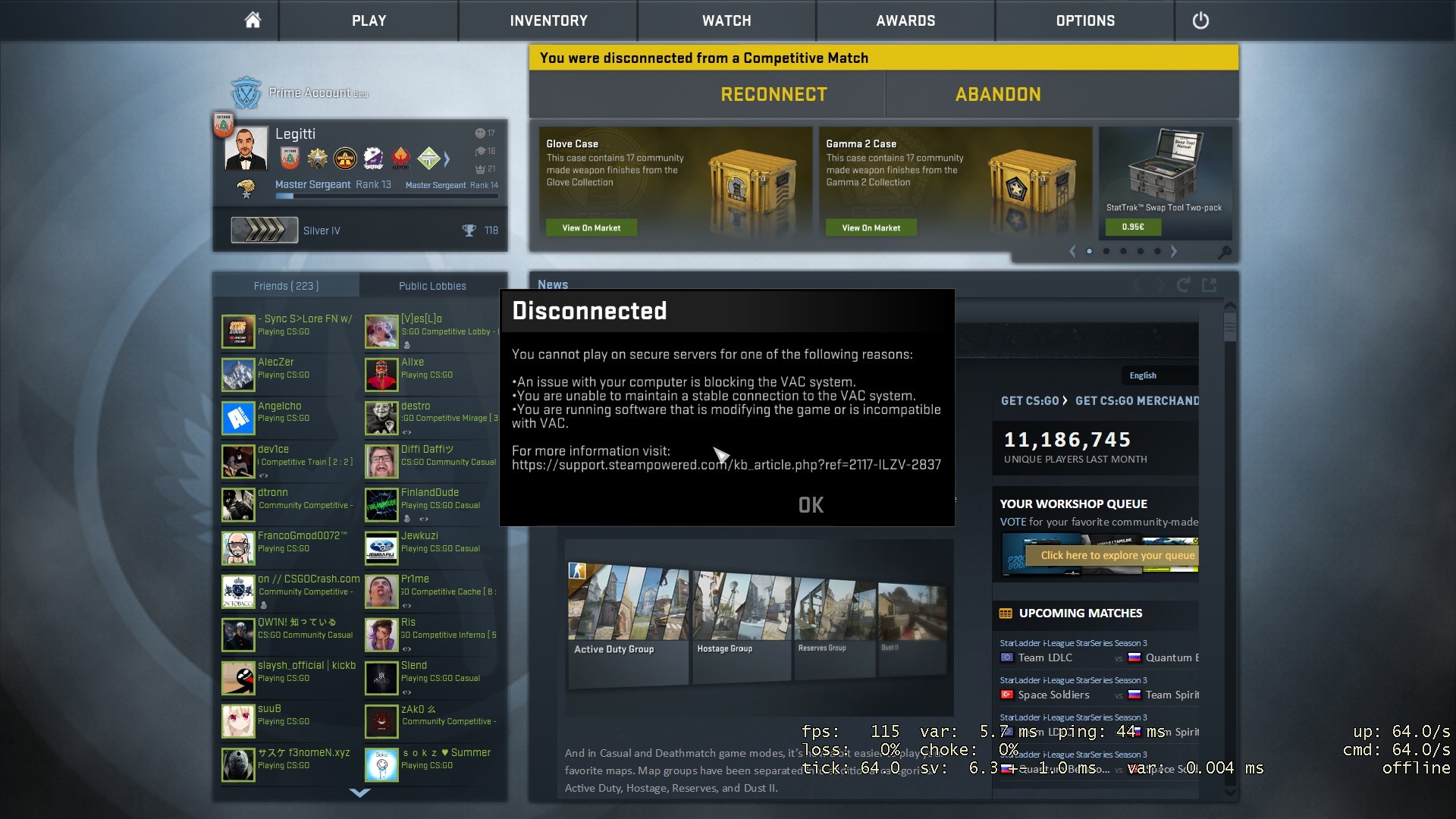Bridal Bliss Insights
Your go-to blog for all things weddings, trends, and bridal elegance.
The VAC Ban Paradox: How One Match Changed Everything
Discover how a single match led to the VAC Ban Paradox, reshaping gaming forever. Unravel the mystery behind this game-changing event!
The Ripple Effect of One VAC Ban: How It Transformed the Competitive Landscape
The competitive gaming ecosystem is a complex network of players, teams, and organizations, all striving for recognition and success. However, one VAC ban can send shockwaves throughout this tightly-knit community. When a player receives a VAC ban, it not only affects their standing in the game but also impacts their team’s dynamics and its strategic outlook. Teams might be forced to rethink their roster, leading to significant changes in practice schedules, synergy, and even sponsorship deals, as brands may hesitate to associate with a team that has faced such scrutiny. This ripple effect highlights how interconnected and vulnerable the competitive landscape can be to individual actions.
Furthermore, the fallout from a VAC ban can reshape community perceptions and competitive integrity. Players who admire the banned individual may question their heroes’ values, while others see it as a cautionary tale on the importance of fair play in esports. The incident generates discussions around cheating and its repercussions, pushing developers and tournament organizers to enforce stricter regulations and create educational content on maintaining a clean competitive environment. This increasing emphasis on integrity serves to elevate the competitive atmosphere, as players and teams now know that the stakes are higher than ever in an era where one decision can indeed alter the course of many.

Counter-Strike is a popular team-based first-person shooter that has captivated millions of players worldwide. Players can customize their loadouts with various skins, including driver gloves, which enhance the aesthetic appeal of their characters. The competitive scene of Counter-Strike features numerous tournaments that showcase top-tier gameplay and strategy.
Understanding the Mechanics of VAC Bans: What Every Player Should Know
Understanding the Mechanics of VAC Bans is crucial for every player who values their reputation in the gaming community. The Valve Anti-Cheat (VAC) system is designed to maintain a fair gaming environment by detecting and banning players who use cheats or hacks. When a player is banned through this system, they receive a VAC ban on their account, which restricts access to all VAC-secured servers. Unlike other bans, VAC bans are usually permanent and cannot be appealed, making it essential for players to be aware of the practices that can lead to such penalties.
To avoid falling victim to a VAC ban, it's important for players to understand the common root causes of these bans. First and foremost, players should steer clear of third-party software that modifies game files or provides unfair advantages. Additionally, even using known cheat software, even in solo play, can lead to an automatic VAC ban. Players should also be cautious about using shared accounts, as any infractions on a shared account can affect all linked accounts. Being educated about these factors will help players preserve their gaming experience and enjoy a fairer competitive environment.
Is It Fair? The Ethics of VAC Bans and Their Impact on the Community
As gaming communities grow and evolve, the enforcement of rules and regulations often comes into question. VAC Bans, or Valve Anti-Cheat bans, are a significant part of online gaming ecosystems, particularly in titles like Counter-Strike: Global Offensive. These bans are designed to maintain fair play and uphold the integrity of the gaming experience. However, the ethics of VAC Bans raise important questions about fairness, especially when considering the impact on innocent players. When a player is banned—whether justly or mistakenly—the ripple effects can be profound, leading to frustration and disillusionment among the community. The debate lies in whether the measures taken are proportional to the offenses committed.
Furthermore, the impact of VAC Bans extends beyond individual players to influence the community dynamics as a whole. For some, the presence of bans acts as a deterrent, fostering a healthier gaming environment. In contrast, others argue that flawed detection methods and lack of transparency can undermine the system's credibility. This situation raises ethical concerns: Should we prioritize community integrity over individual rights? Ultimately, the question of fairness in the context of VAC Bans is complex, necessitating a balanced approach that considers both the enforcement of rules and the protection of players' rights, thus ensuring a just gaming environment for all.